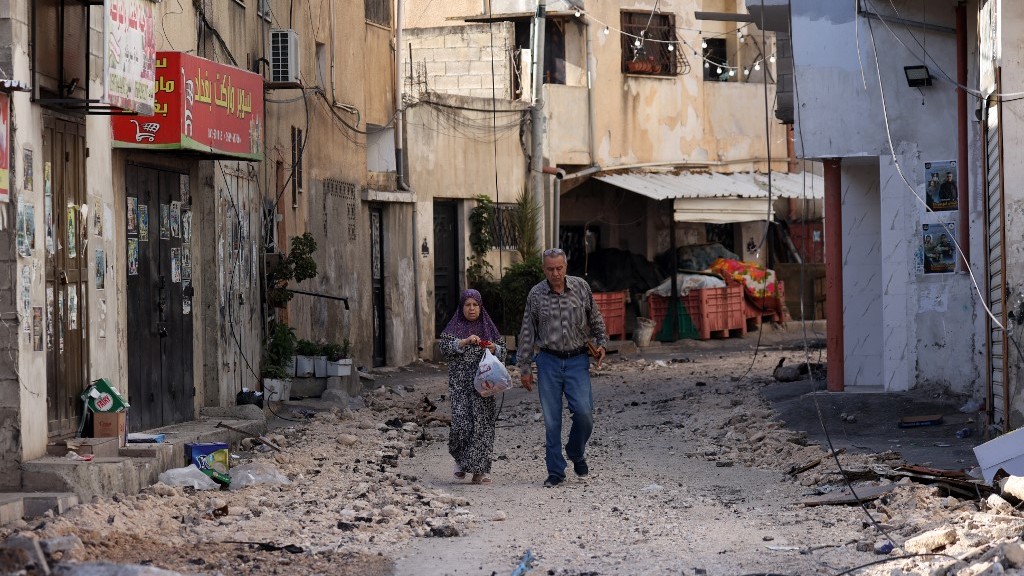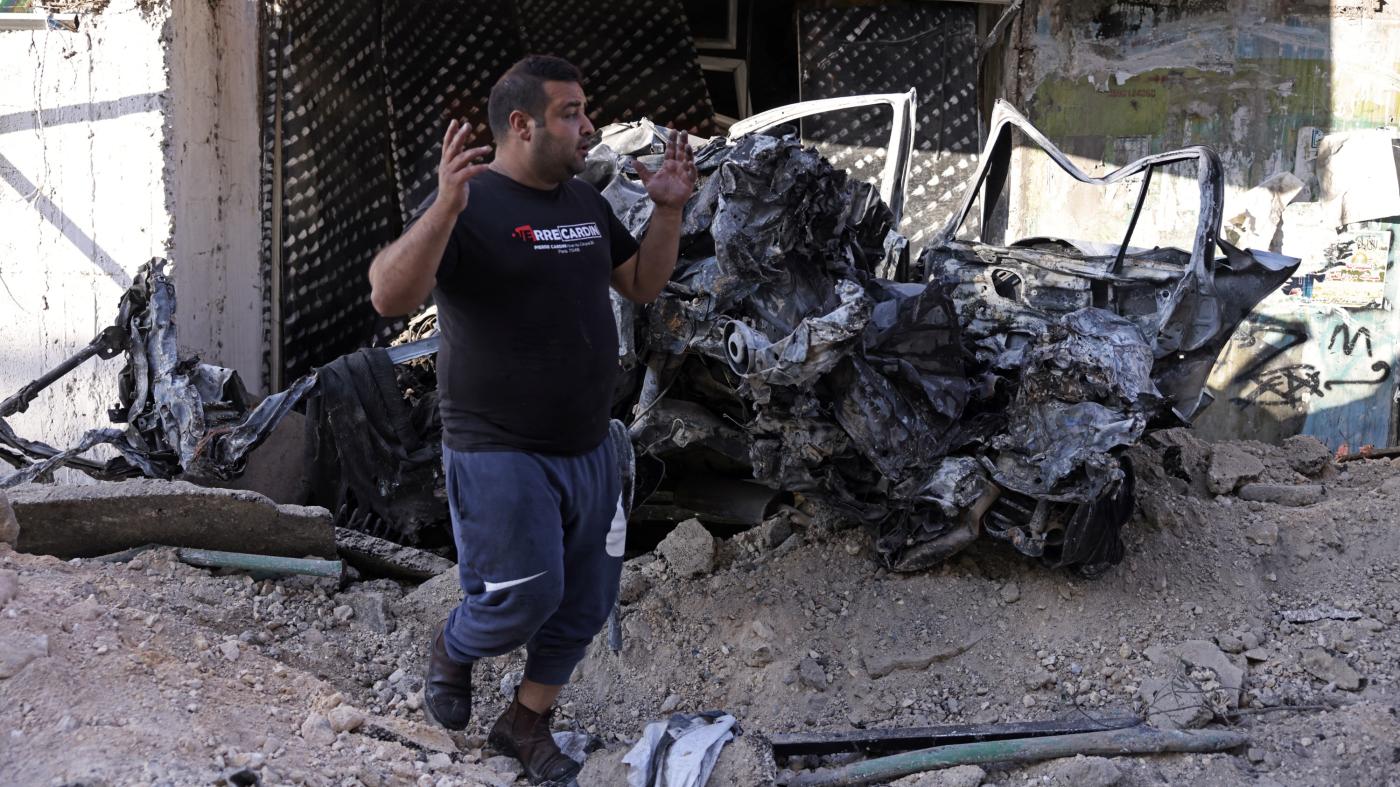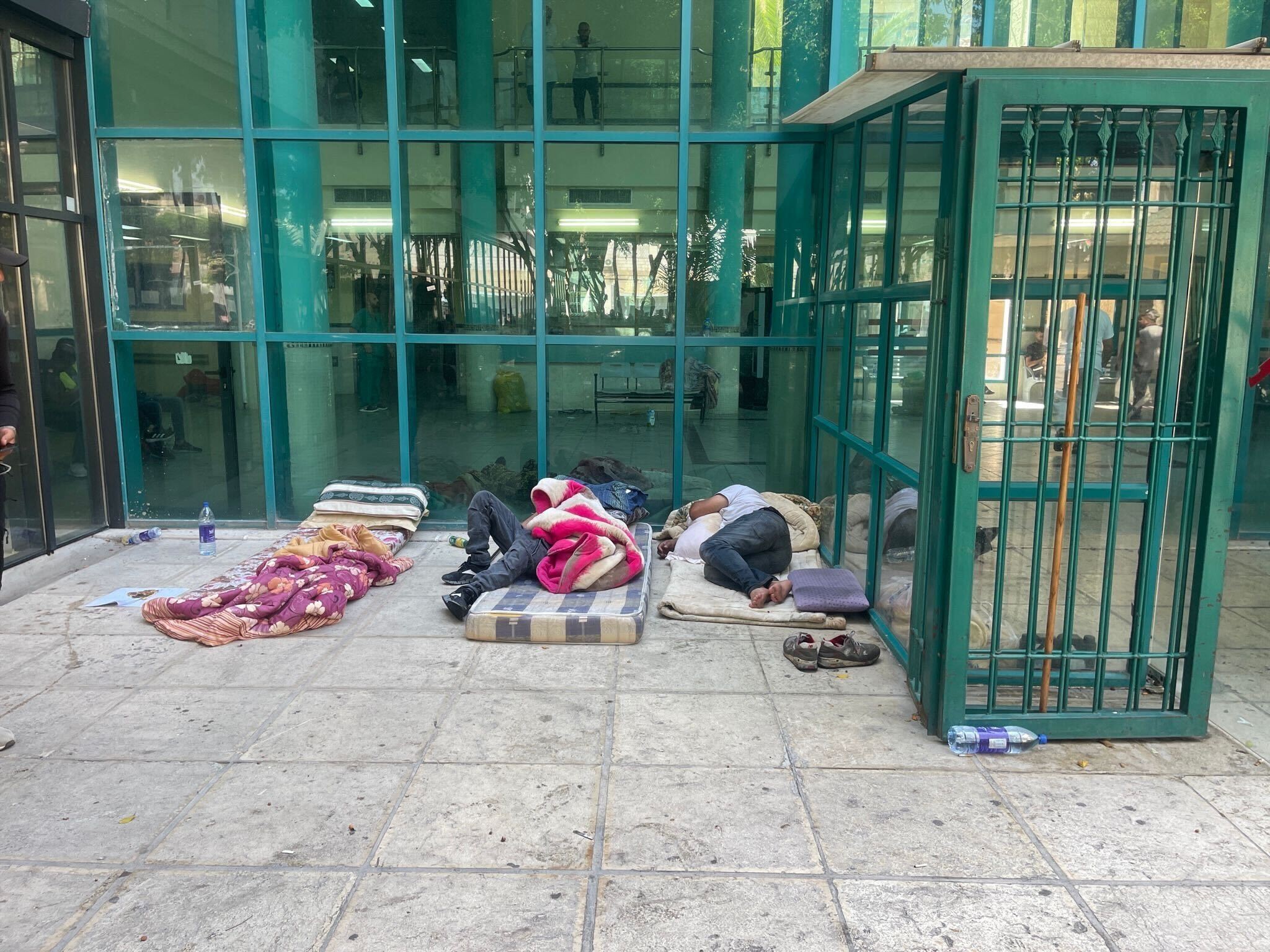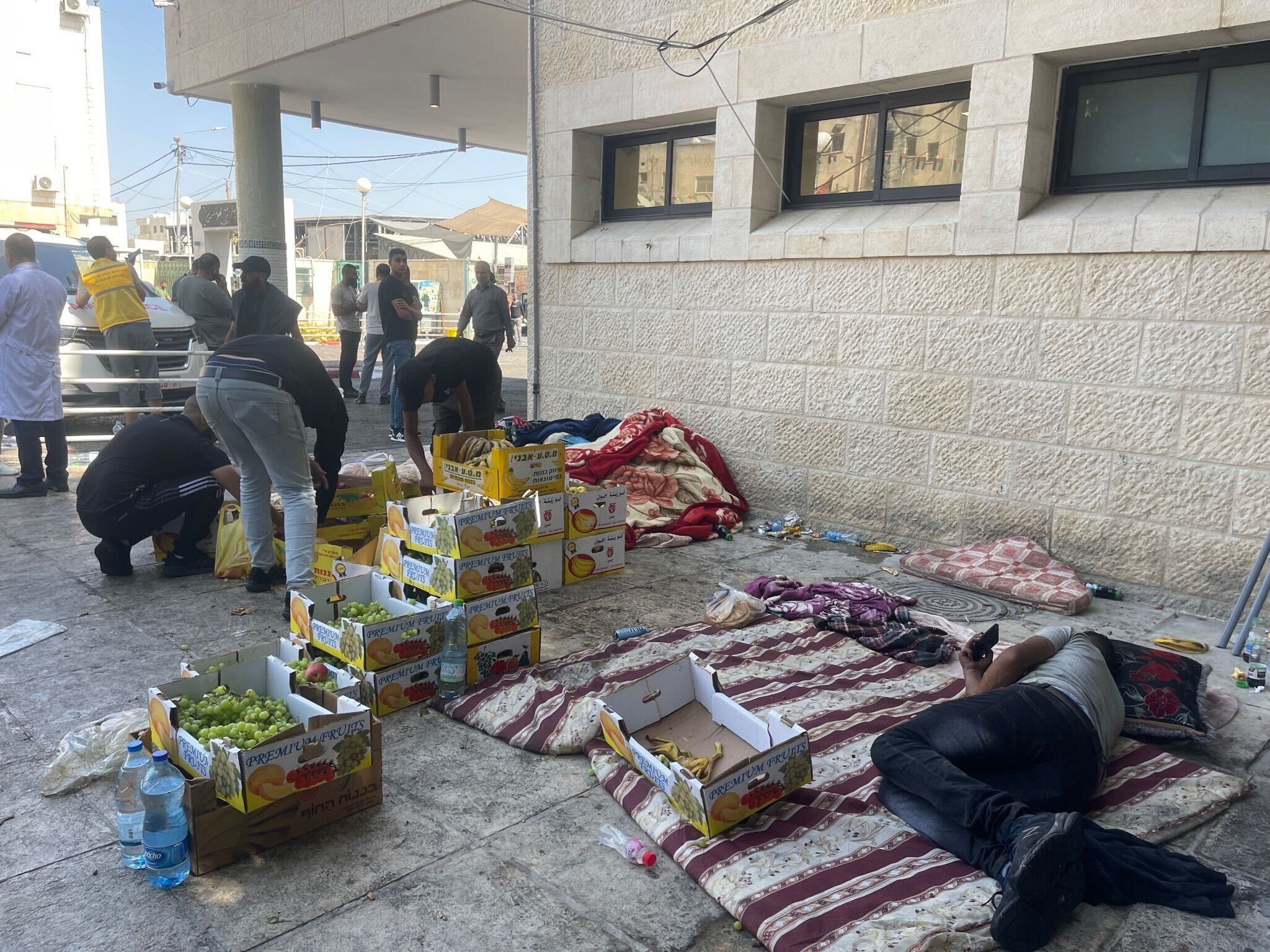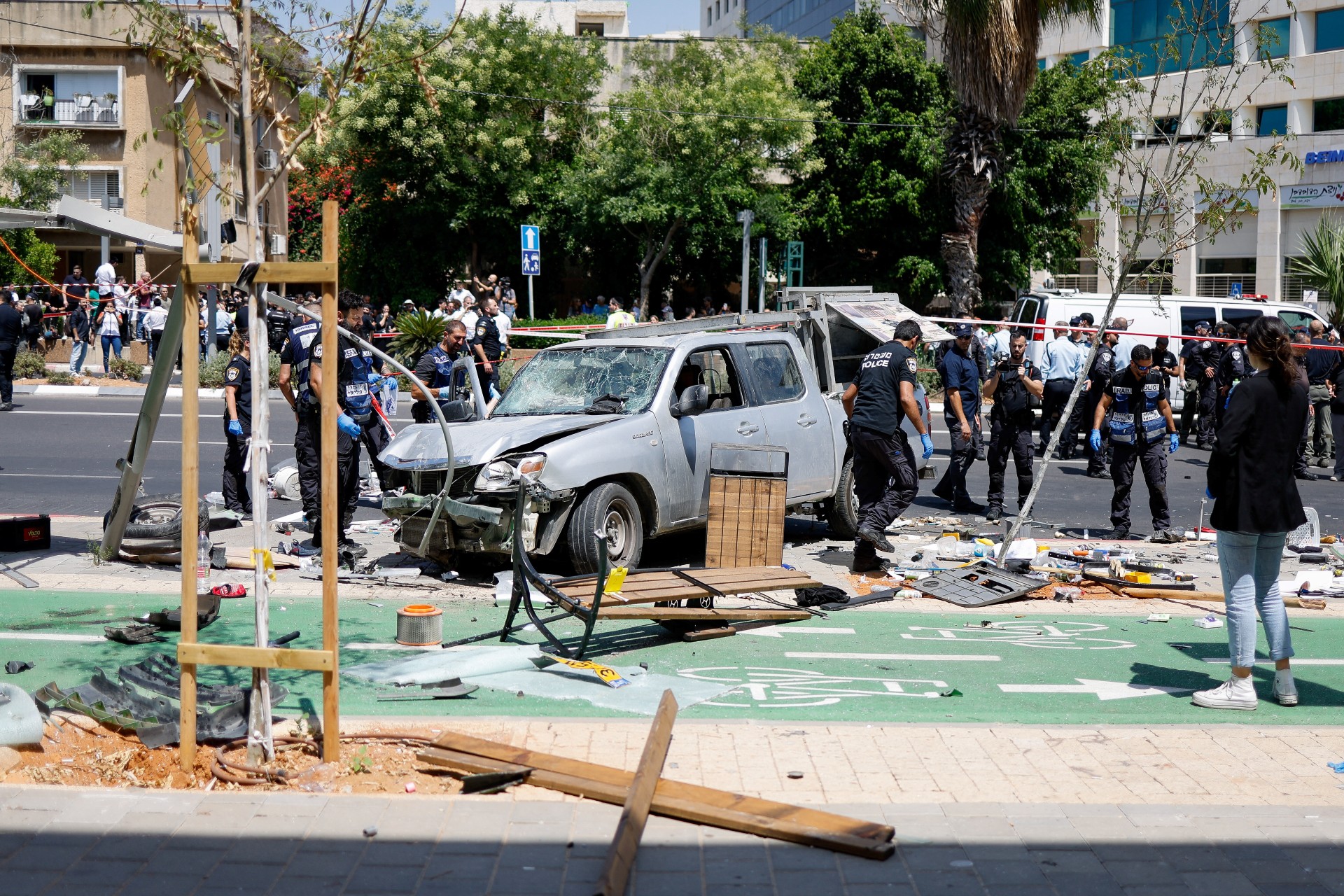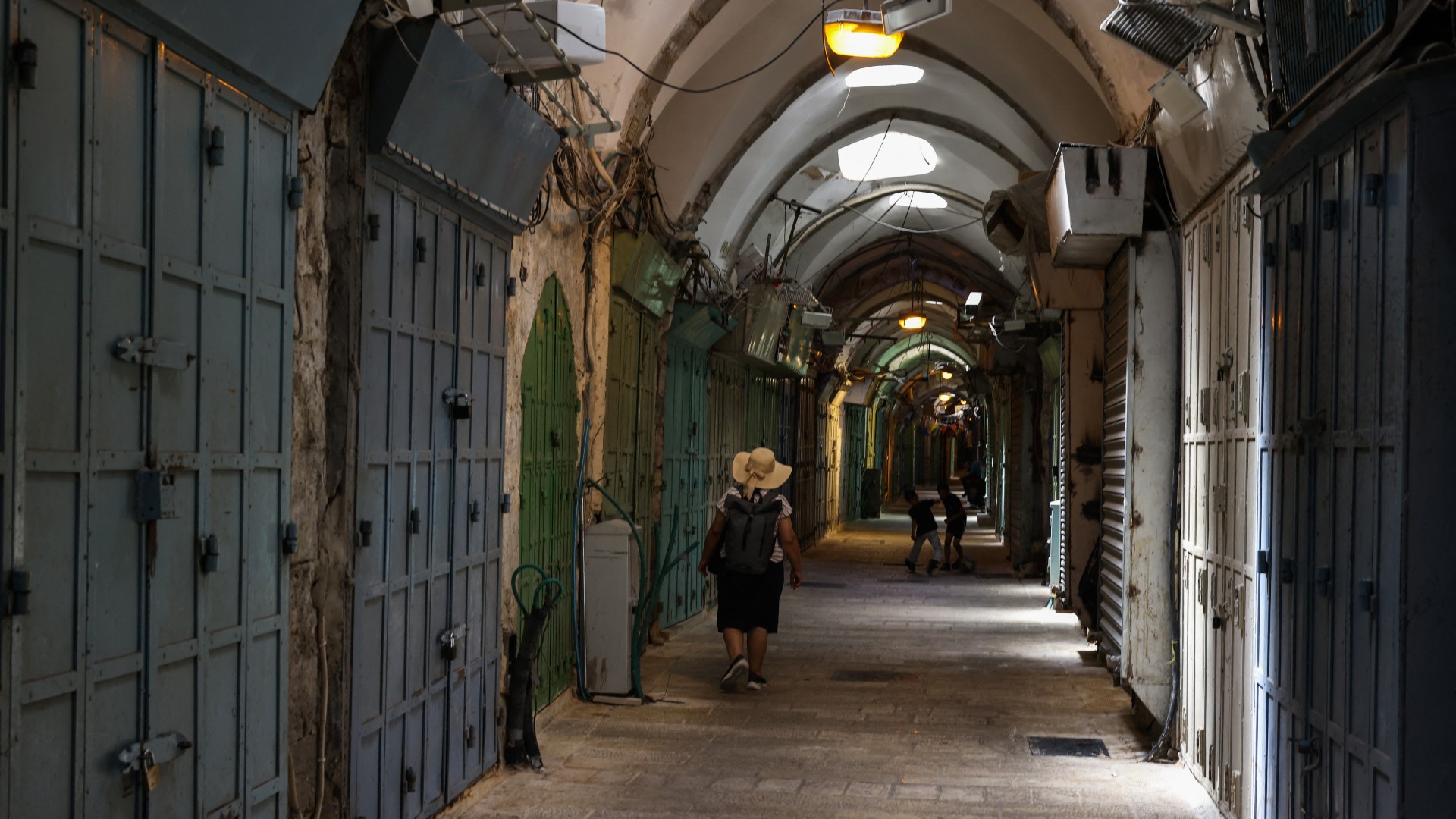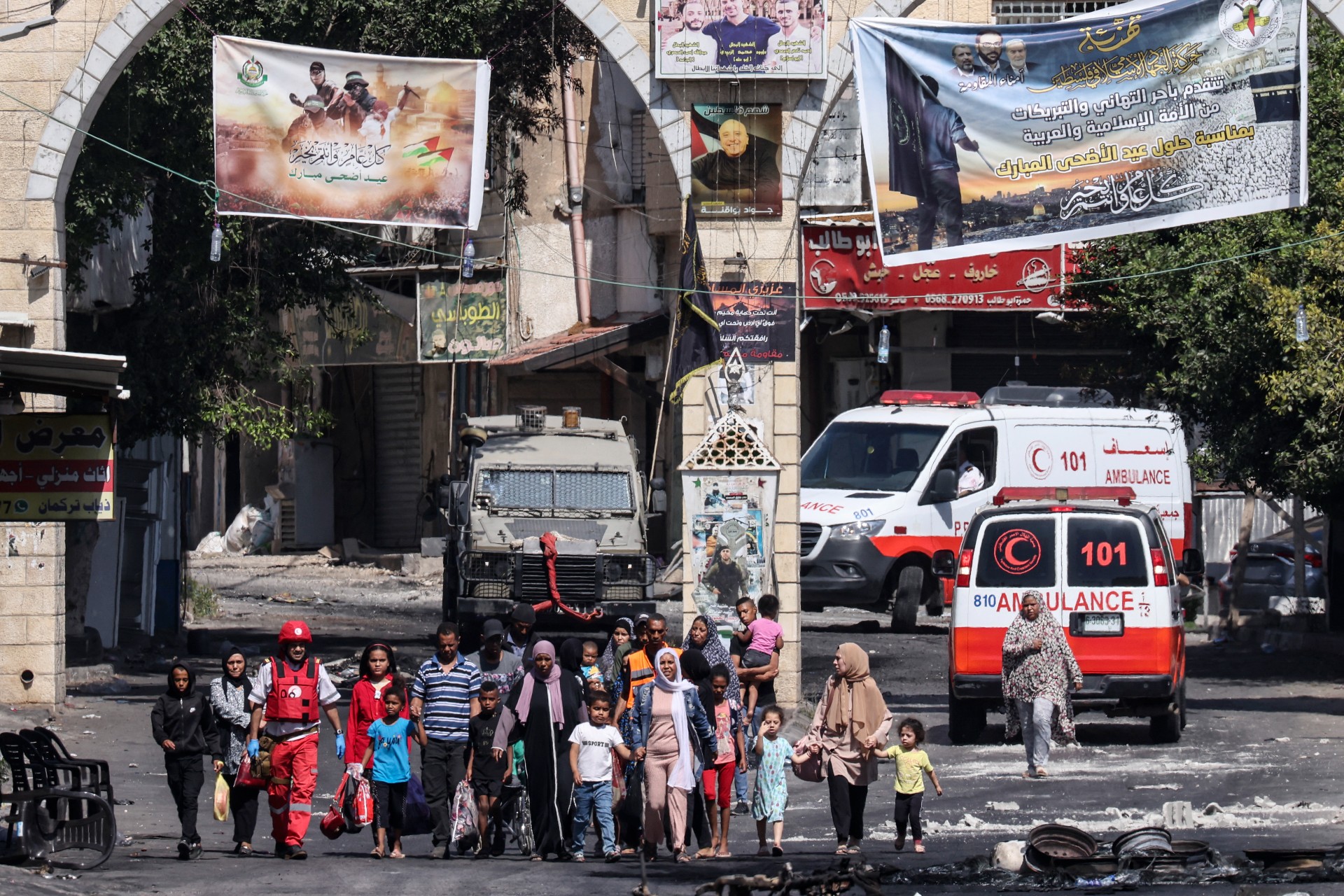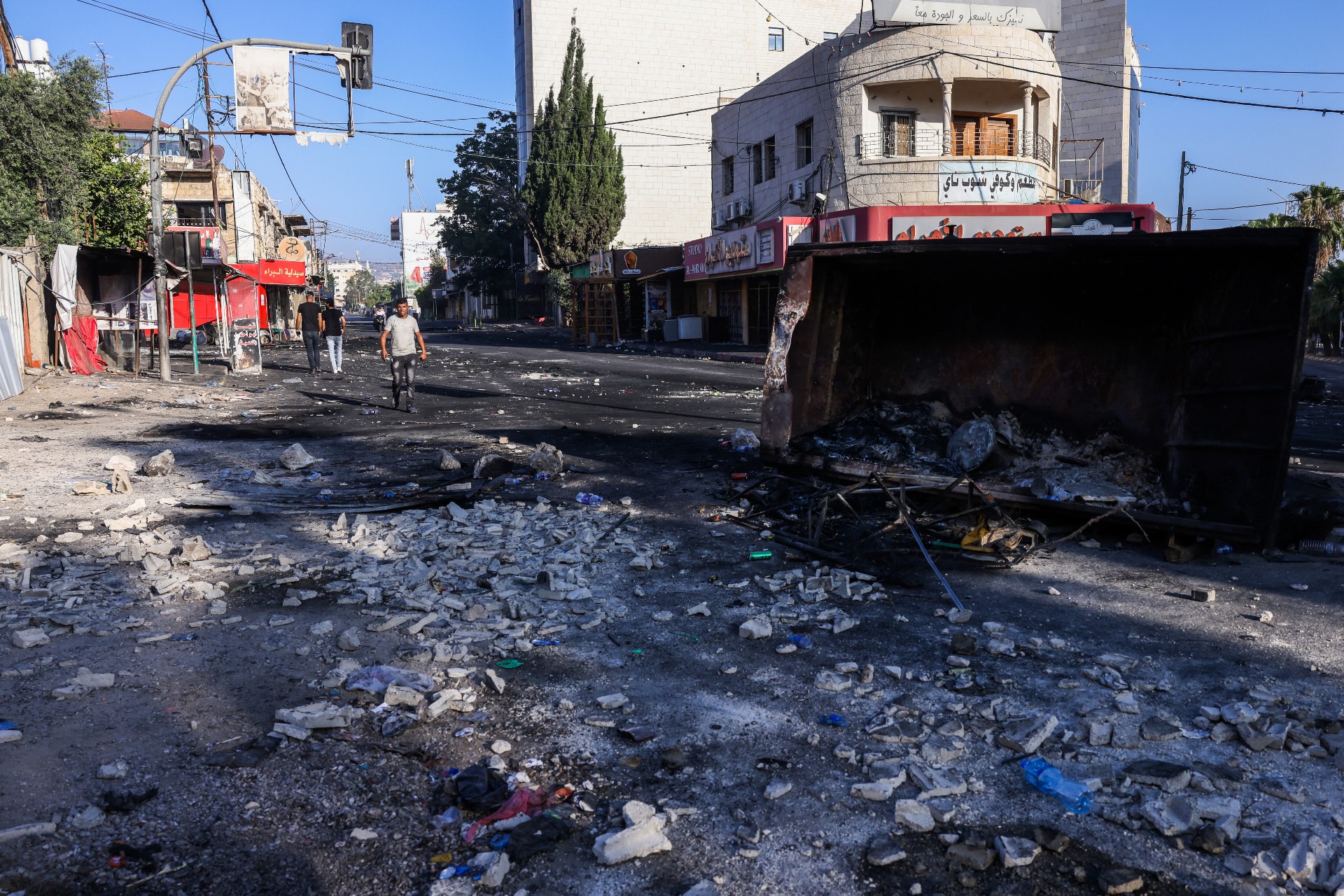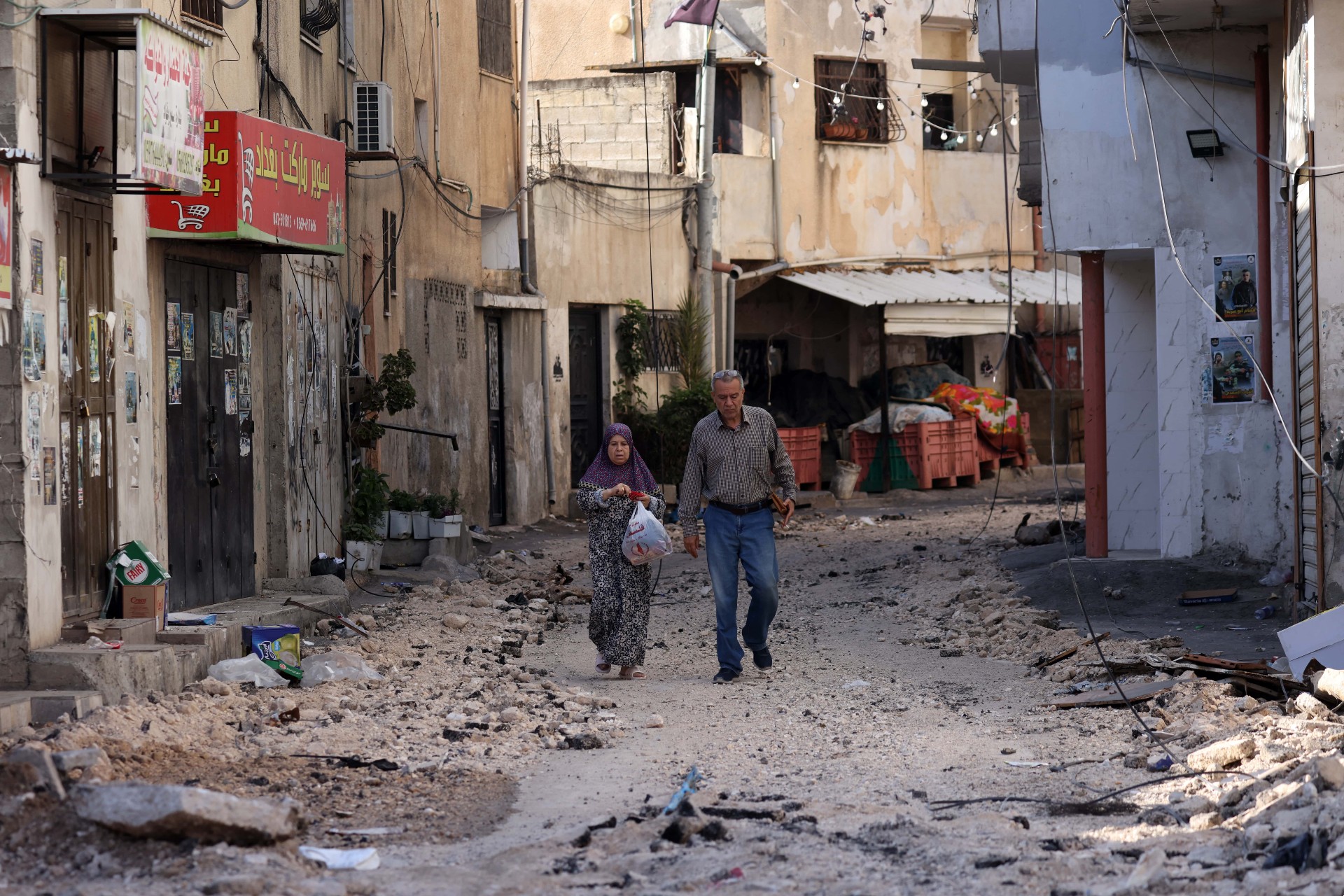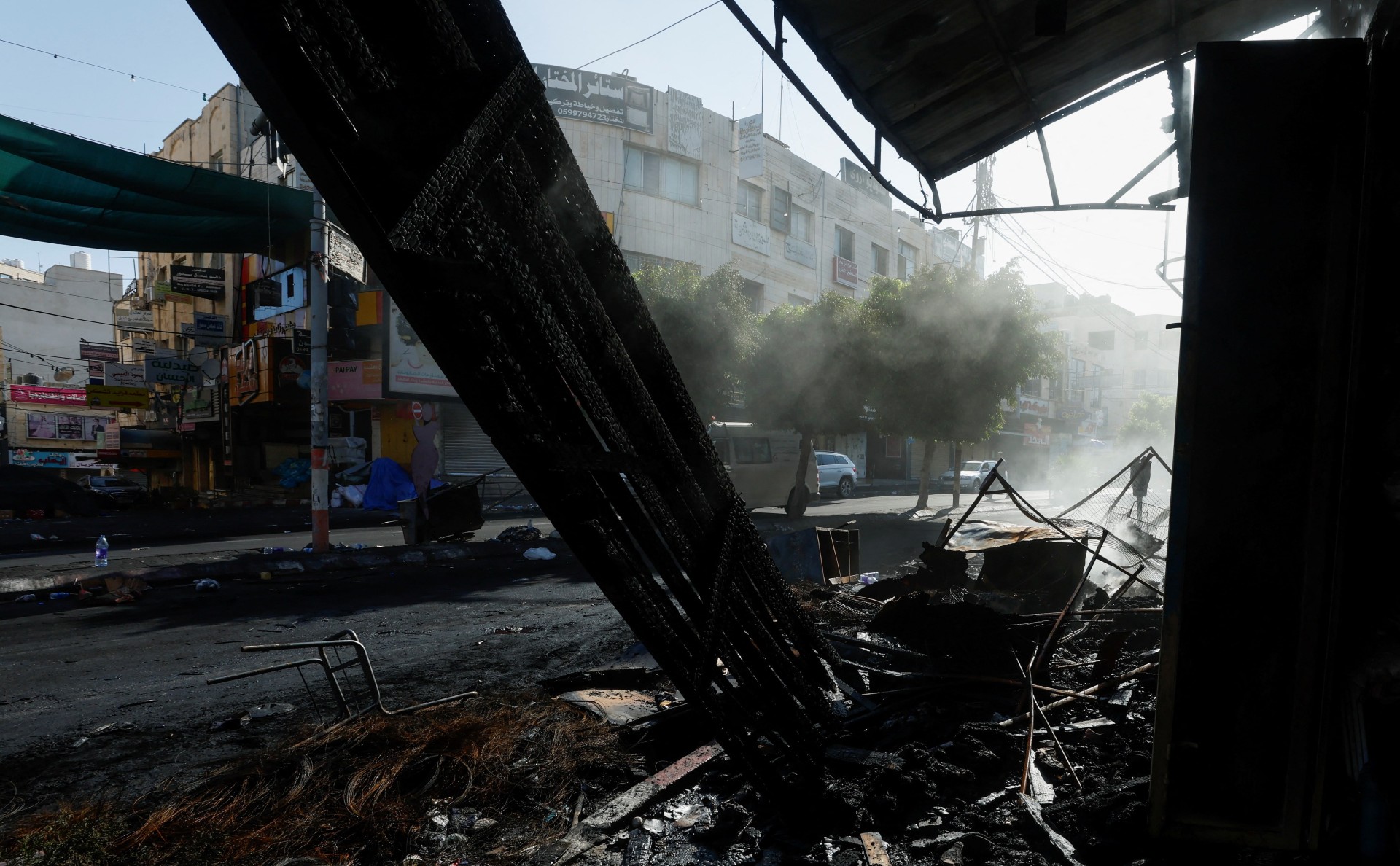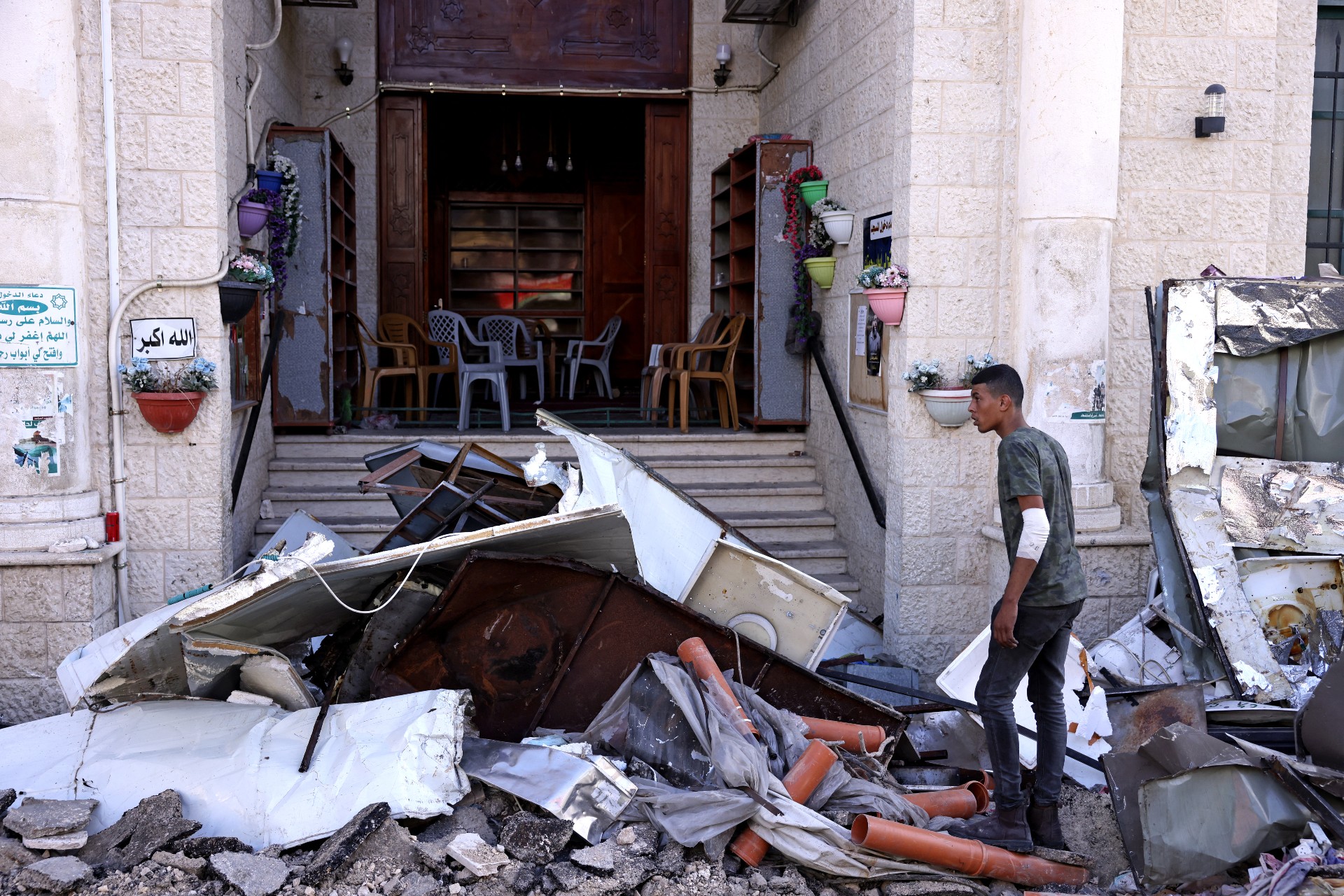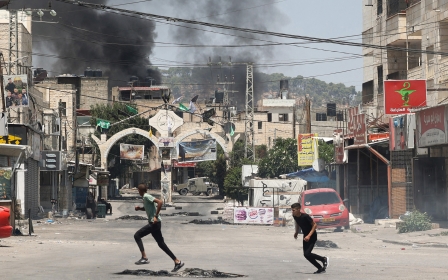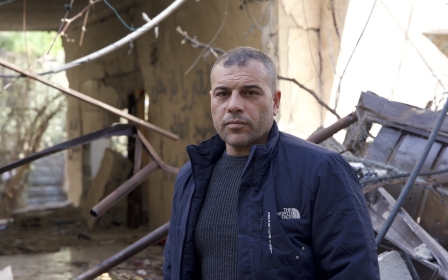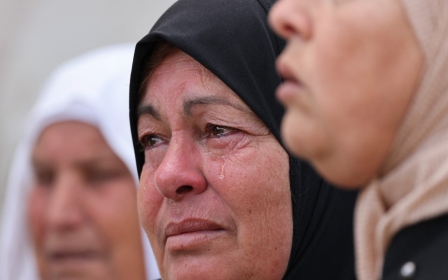Live: Jenin raid ends with 12 Palestinians and an Israeli dead
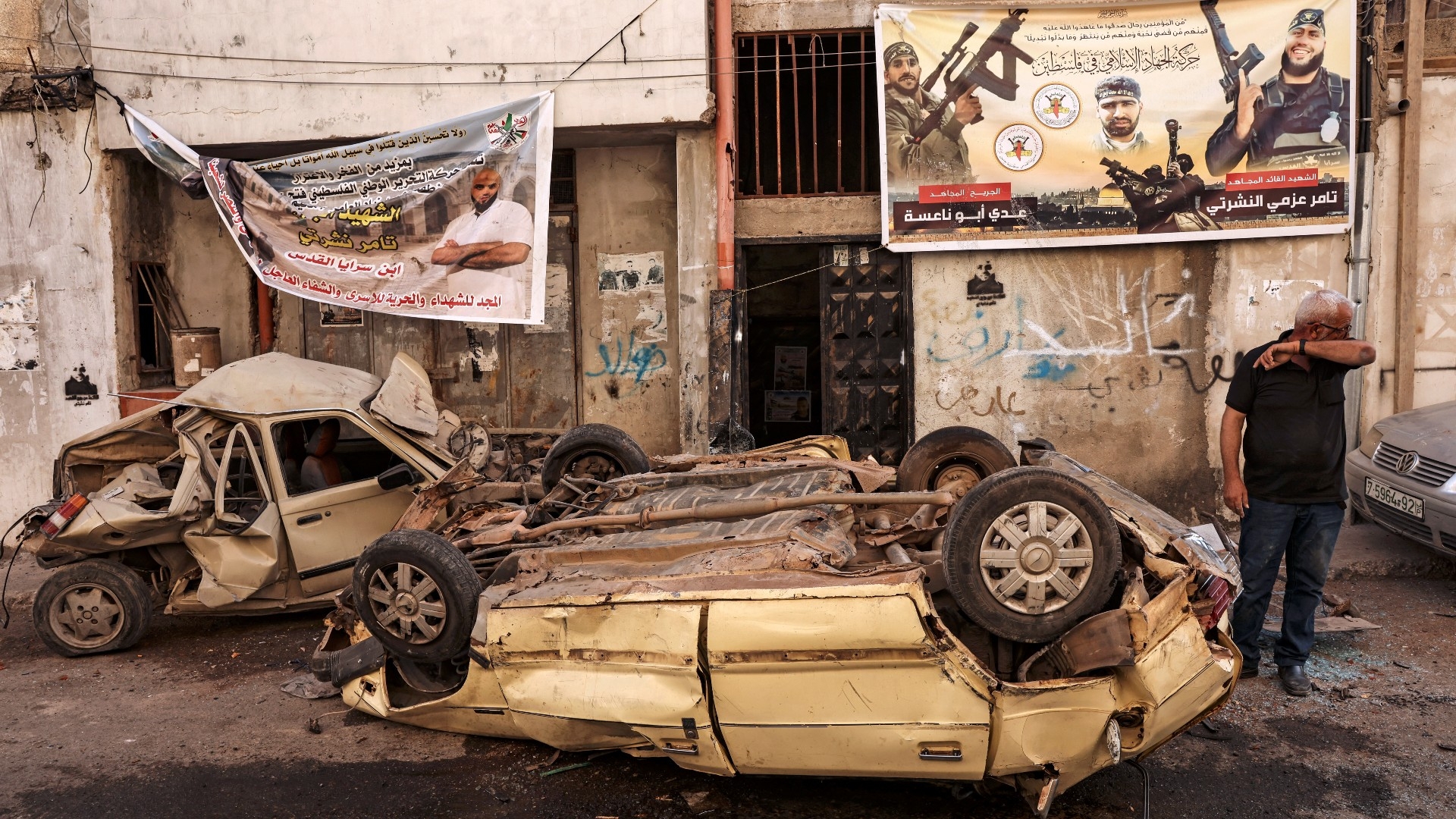
Live Updates
Jenin is still reeling from Israel’s offensive, which has caused complete destruction to large areas, including buildings, homes and roads.
Ameed Shahada, who was in the Jenin camp when the offensive started, described scenes of horror, comparing it to the aftermath of an earthquake.
“Whenever I’d walk past a house, I could hear the sound of crying and wailing,” he said, describing the early hours of Monday morning, where Israeli tanks were deployed and live fire was used.
Shahada, sought refuge in a nearby house during the raid, where he was trapped for two hours along with other families who had gathered there to seek safety.
Like many other journalists covering the events on the ground, Shahada had his equipment completely destroyed, as he watched his camera being shot by Israeli forces multiple times.
“At this point it felt like we were going to be killed at any moment, right where we were,” he said.
You can read Shahada’s full account of what happened, as well as a description of what the camp looks like now, here.
Jenin raid: An eyewitness account of Israel’s large-scale offensive
Eyewitnesses on the ground in Jenin are reporting widespread arrests of Palestinians, including people in hospitals and medical centres.
“Many people are being detained and arrested. One of the people arrested was Hashem Abu Deeb. Israeli forces entered his home, searched him and rounded him up with others,” Middle East Eye correspondent Mohammed Atiq said.
“They were put in the back of jeeps and taken away to be questioned and then some were eventually left to go,” he added.
Yazin Soukeyeh, a 20-year-old who spent the day in Jenin’s Public Hospital, described the scenes as "chaotic".
“We tried to move women and children to a safe place outside of the hospital, and I stayed close by to the camp in case any other casualties occurred, so I could help. The scenes are terrifying, especially for children,” he told us.
Strikes have continued across the West Bank in support of Palestinians in Jenin, who are still facing ongoing devastation as a result of Israel’s offensive.
Traffic and businesses have come to a complete standstill across the West Bank, in what has been described as the broadest public response in recent years.
Mahmoud Abu Ali, a shop owner on the main street near Birzeit University, north of Ramallah, told us that he had seen calls to close shops on social media and didn’t hesitate to close his shop.
He said that the purpose of the strike is to send a message to the world that all Palestinians reject the Israeli aggression on Jenin.
"This is the least we can do. We can’t reach Jenin camp to help the people, but we hope they know that our hearts are with them and we won’t leave them alone,” he added.
The strikes come after an intense night across all cities in the West Bank, as tensions erupted between Palestinians and Israeli soldiers in more than 30 areas.
The confrontations also coincided with spontaneous marches that took place in the camps’ alleys and the centres of some major cities such as Ramallah, Hebron, Bethlehem and Nablus, all of which were calling for an end to the Israeli aggression.
Residents of the Jenin refugee camp were left stunned by the sheer extent of the destruction left in the wake of Israel's raid.
Muhammad Abu Talal, a resident of the camp, told Middle East Eye that Israeli bulldozers levelled most of the streets surrounding the camp from the moment they first stormed it on Monday morning.
“Most of our homes were cut off from electricity at the beginning of the invasion, and we saw many water pipes exploded from under the streets, which were bulldozed and destroyed,” he said.
Yasmine Hantoly, a journalist from Jenin, said that the structure of the camp was already weak due to the density of the population.
"The soldiers invade everything, climb into buildings and storm homes, taking them as military barracks and terrorising children and women without consideration," she told MEE.
Click below to read Fayha Shalash's report from Jenin on the destructive aftermath of Israel's assault:
Israel bulldozers 'plough' Jenin's streets and destroy infrastructure
More than 30 hours since Israel launched a large-scale raid on Jenin, more than 4,000 Palestinians have been displaced from their homes.
Those evacuated have been left with no shelter, water or electricity, while attacks continue on buildings and in the streets of Jenin's refugee camp.
Many Palestinians were seen sleeping on the ground outside buildings after they were forced to flee their homes because of live fire.
The World Health Organisation has raised concerns over the large number of casualties and displaced people, calling on medical workers and facilities to be respected.
Throughout the offensive, hospital buildings and medical personnel have been targeted with tear gas and live fire, further putting the lives of wounded people at risk.
Some Palestinians spent the night inside hospital buildings in an effort to find a safe place to seek shelter, however were met with tear gas canisters raining down on them this morning.
According to local media, more than 120 Palestinians have been detained since the raid began.
Seven people were injured by a car ramming and stabbing attack in Tel Aviv, according to Israeli police.
Video circulated on social media showed a pick-up truck that had mounted a pavement near a shopping centre.
The driver reportedly ran over pedestrians, before exiting the vehicle and carrying out a stabbing attack. He was shot dead at the scene by a civilian, Israeli police said.
Some of those injured had knife wounds, according to a spokesperson for Israel's Magen David Adom ambulance service.
Tel Aviv Police District Commander Ami Eshed said the attack was carried out by a Palestinian from the occupied West Bank.
In response, Hamas spokesperson Hazem Kassem said: "The heroic action in Tel Aviv is the first response to Israel's crimes against our people in the Jenin refugee camp. As the [Palestinian] resistance has already put it – Israel will pay the price for its crimes."
Khaled Al-Batsh, a senior official from the Islamic Jihad movement, praised the attack as "an initial and natural response of the resistance towards what is happening in Jenin".
The veteran Israeli war journalist Ron Ben-Yishai has cast doubt on the long term success of the ongoing military raids in Jenin.
In a column for the Israeli daily Ynet news, Ben-Yishai said it was difficult to judge "whether the operation in Jenin will immediately create deterrence" against Palestinian groups.
"There are still hundreds of armed men in the Jenin refugee camp who are hiding, and when the operation is over, it is quite possible to estimate that they will come out of their hiding places and try to take revenge,” said Ben-Yishai.
"It is also possible to estimate with high probability that many of the armed members of the "Jenin Brigade", which is the local organisation of the Palestinian Islamic Jihad, Hamas and Fatah deserters, will return to action when the [Israeli military] leaves the camp,” Ben-Yishai concluded.
Jenin’s public hospital was attacked on Tuesday afternoon, with videos showing people fleeing from the facility as smoke billowed around the building.
Israeli forces targeted the hospital using tear gas canisters, according to local media.
Translation: Press coverage: "Israeli forces launched a massive barrage of bombs on Jenin Public Hospital a short while ago"
Palestinian Red Crescent staff reportedly experienced breathing difficulties as a result of the attack.
People were left in a state of distress and panic, as many sought shelter in the hospital overnight after being evacuated from Jenin refugee camp.
General strikes have been held across various Palestinian cities in solidarity with Jenin following Israel's offensive.
In Jerusalem’s Old City, shops were closed and streets were empty in response to the Israeli operation which has killed at least ten people. The West Bank city of Ramallah also protested, with all shops closing down.
Images shared online showed widespread strikes taking place in Hebron, where people closed businesses and condemned Israel's assault.
In Nablus, thousands of Palestinians marched in the streets, chanting for those killed in Jenin.
Shops were also shuttered in the beseiged Gaza enclave, where protesters gathered at the border with Israel and burned tyres.
A driver has been shot and killed after a suspected car-ramming attack in Tel Aviv, according to Israeli medics and Haaretz.
Magen David Adom (MDA), Israel's national emergency and medical service, reported that a number of people were injured by a car on Pinchas Rosen Street, just after 1pm local time.
"[Our] EMTs and paramedics are providing medical treatment to 5 casualties at the scene," it tweeted.
Haaretz reported that the driver was shot and killed on site by a civilian.
Israeli forces denied access to medics attempting to treat those wounded during Israel's deadly operation, according to NGOs and the World Health Organisation.
"First responders have been prevented from entering the refugee camp, including to reach persons who have been critically injured," said WHO spokesperson Christian Lindmeier.
Doctors Without Borders (MSF) said that gas canisters landed in the courtyard of the Khalil Suleiman hospital, where its staff were treating patients who had suffered gunshot wounds.
The charity said that Israeli military bulldozers destroyed roads leading up to the camp, making it “nearly impossible” for ambulances to reach the wounded.
“This is an unprecedentedly long military operation, and yet there are still victims that cannot be reached. Health care staff must be allowed to access patients unhindered,” said Jovana Arsenijevic, MSF’s operations coordinator in Jenin.
“Raids on Jenin camp have started to follow a familiar pattern - ambulances have been rammed by armoured cars and patients and health care staff have routinely been denied entry and egress to the camp.
"Medical structures, ambulances and patients must be respected.”
The Palestinian Medical Relief Society said that Israeli forces blocked ambulances and fired at Jenin’s al-Amal hospital.
When the Israeli military killed three Palestinians in a drone strike near Jenin earlier this month it marked the first aerial attack in the occupied West Bank in nearly 20 years.
Its continued use of drones in the West Bank during the latest assault by Israel marks a "perceptual change" in its relationship with the occupied territory, says Yonatan Touval, an analyst at the Israeli Institute for Regional Foreign Policies (Mitvim).
In a series of tweets, the Israeli analyst said that the use of drones is "widely associated with combat on fronts that are either geographically distant or fronts on which you have no territorial claim to".
Consecutive Israeli governments have framed the West Bank as the "heart of its ancestral homeland", and the use of drones, says Touval is increasingly "cognitively dissonant" with that idea.
Israel's raids in Jenin "continue upending this guiding principle, in that it recasts the West Bank, or at least parts of the West Bank as a territory that, in marked contrast to the past, should be treated at arm's length".
Good morning MEE readers.
Shelling and fighting continued overnight in Jenin, in the second day of Israel's large-scale operation in the occupied West Bank city.
The death toll has now risen to 10, after a Palestinian wounded on Monday was confirmed dead overnight, and the body of a man hit by Israeli fire was found in the morning. At least 100 others were wounded.
Around 3,000 Palestinian civilians fled their homes in the Jenin refugee camp on Monday night, according to the Palestinian Red Crescent.
In the early hours of Tuesday, Israeli warplanes continued its operation, with a series of explosions heard in the al-Damej neighbourhood, and columns of smoke visible shortly afterwards.
Drones were also seen flying over the camp, according to local reports, in what was a relative lull in fighting compared to yesterday.
Israeli National Security Adviser Tzachi Hanebi indicated that the assault was nearing its end, telling Kan Radio that the operation was "close to completing the achievement of the goal set".
Monday's offensive, which involved drones, Apache attack helicopters, and ground forces including army bulldozers, was widely described as one of the worst Israeli attacks on Jenin in two decades.


